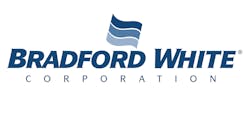Bradford White Joins Industry Associations to Urge Focus on Recruiting
AMBLER, PA – As global economic disruption accelerates during the ongoing coronavirus pandemic, leaders in manufacturing, distribution and residential and commercial services are calling attention to overlooked career opportunities in the traditional skilled trades and urging an industry-wide focus on workforce development to close the skilled trades labor gap and recruit a new generation of young workers.
“For young people who are seeking a rewarding career but don’t feel like four years of college is the best choice for them, there are some tremendous advantages to seeking a career in the traditional skilled trades, from good starting salaries and job security to a variety of opportunities for advancement,” said Carl Pinto Jr., senior director of marketing communications, Bradford White Corporation. “Unfortunately, many high school students and recent graduates who would thrive in our industry never consider a career in the trades. This is due in part to the overwhelming message that is being delivered through a variety of channels - college is the only path to success. But recent circumstances have highlighted the fact that manufacturing and residential and commercial service jobs are a critical part of the national economy. Lockdowns and social distancing have created challenges for the industry, but HVAC service and clean hot water have proven to be necessities during a pandemic. An overwhelming number of manufacturers and contractors were quickly identified as essential services and have been operating continuously since the COVID-19 outbreak began.”
Pinto and other experts share a concern about the demographics for manufacturing, distribution and skilled trades jobs.
“Everyone has a sweet spot in life and a unique path toward finding the career that best suits them,” said Rep. Tim Walberg of Michigan. “For some people this might mean pursuing a four-year degree, while for others an apprenticeship might be the answer. Whatever that path may be, it is critical that we look for innovative ways to provide educational opportunities for America’s workers and ensure our workforce is prepared for the good-paying jobs of the 21st century.”
According to the American Supply Association, approximately half of the people in those industries are at or nearing retirement age, but only 4% are under the age of 26.
“That’s our greatest concern, that there just aren’t enough people,” said ASA CEO Mike Adelizzi. “At the same time, we have to recognize that it’s an opportunity, too. With so many people aging out of the industry, a young worker can fast track his or her career.”
The ASA and other organizations are involved in ongoing efforts to combat stereotypes about blue-collar jobs. One of ASA’s key initiatives is the ASA Education Foundation, which provides innovative tools and strategies to support the preparation of the next generation of leaders and continued support for the next generation of the industry’s workforce.
“Our industry offers so much for young workers, but unfortunately there are some persistent stereotypes about manufacturing and trades jobs,” said PHCC Executive Vice President Michael R. Copp. “We feel a major responsibility to help our members reach and recruit the best talent. Connecting with the next generation of skilled trades workers not only helps individual businesses succeed, it elevates the industry as a whole.”
The Plumbing-Heating-Cooling Contractors—National Association (PHCC) has made workforce development a strategic priority and is developing a tool kit for its members and their suppliers. PHCC’s Workforce Development Center currently provides potential employees, manufacturers, contractors and suppliers with a library of online information and training material, with additional assets in the works. In response to needs that arose during the pandemic, the PHCC Educational Foundation is leveraging its online learning platform to provide alternative methods to help contractors attract and train new employees.
To learn more about Bradford White, please visit https://www.bradfordwhitecorporation.com/ or call 215/641-9400.
